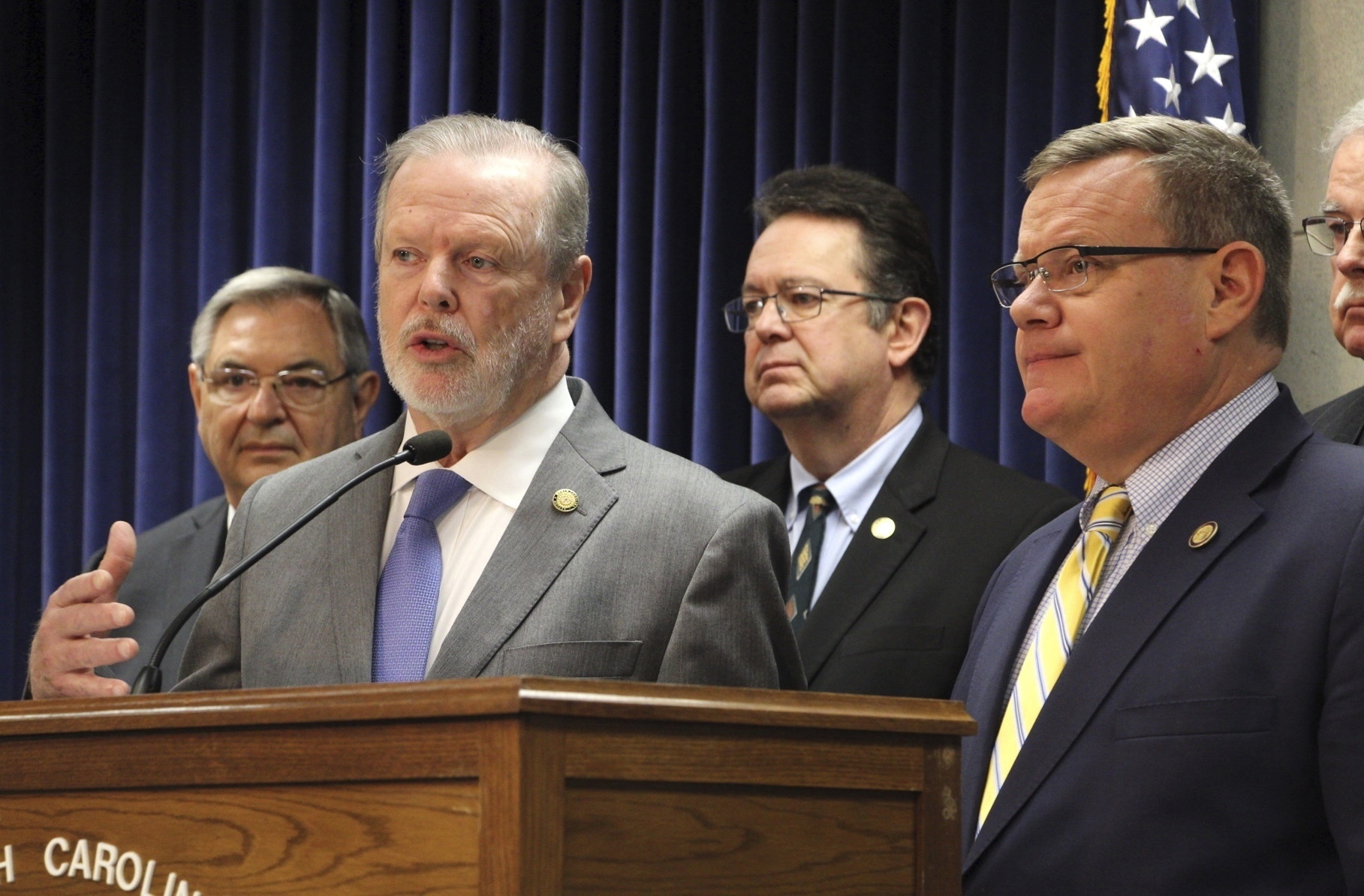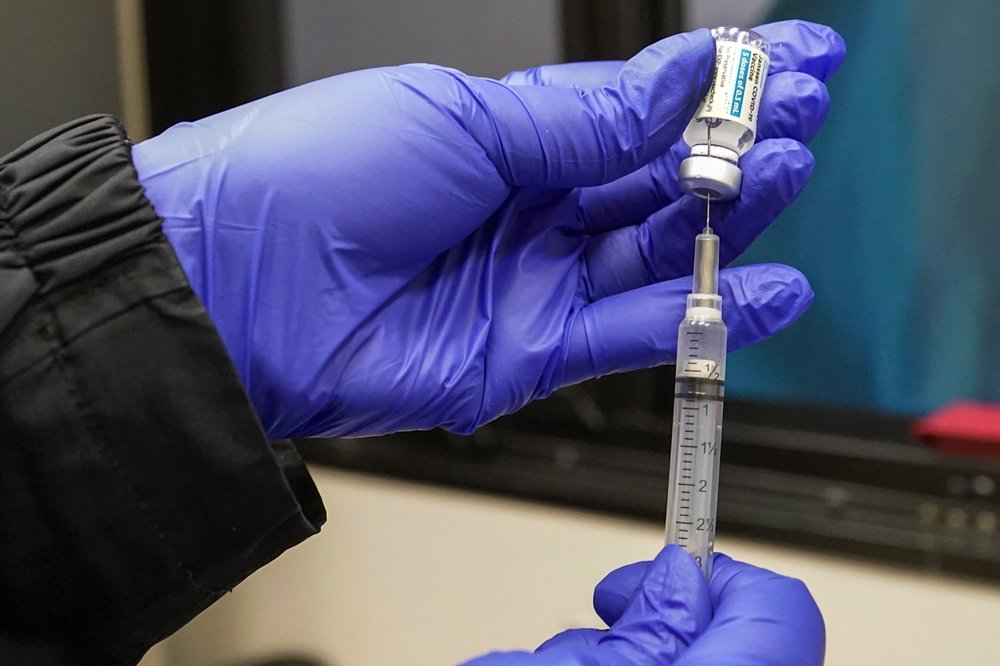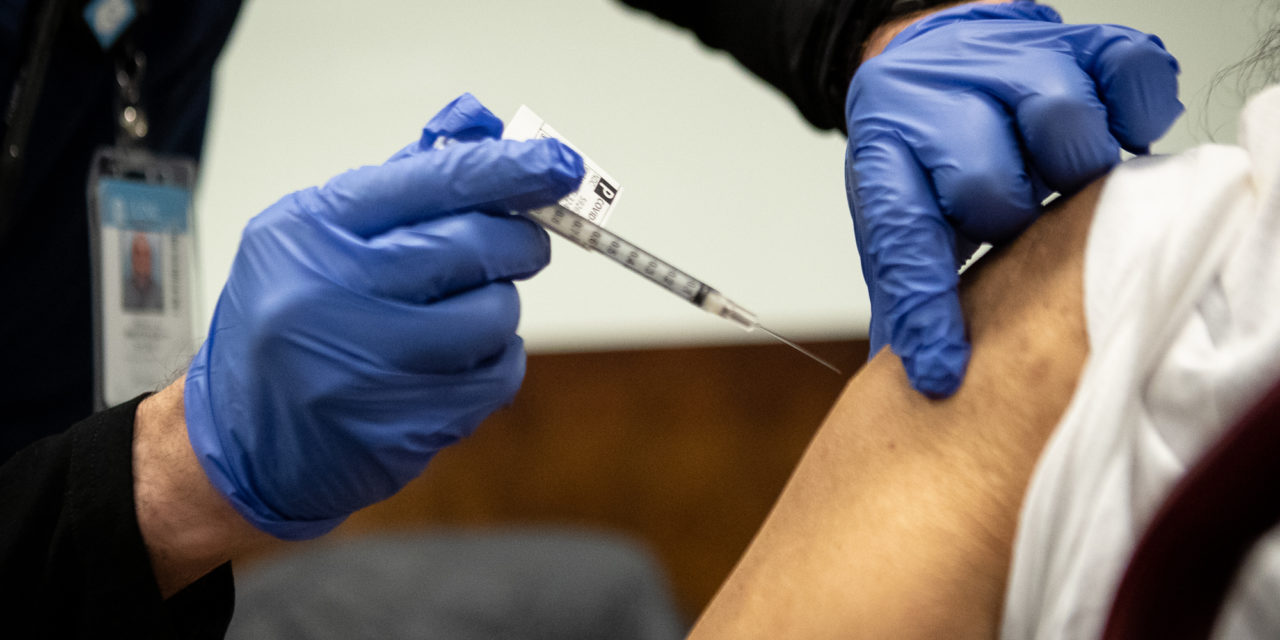Written by BRYAN ANDERSON
North Carolina lawmakers on Wednesday advanced a proposal to prevent state and local governments from firing or retaliating against employees who decide not to get a COVID-19 vaccine.
Rep. Jake Johnson, a Polk County Republican, hopes state lawmakers will embrace his plan, given that it is narrower in scope than some other proposals that would apply to schools, hospitals and businesses.
“I know there’s a couple bills out there that kind of overlap with this and probably do the same thing, but this only refers to state and local employees,” Johnson told members of the House State Government Committee.
House Bill 686 now needs support from two more committees in order to advance for a House floor vote, where it must be approved by May 13 in order to be considered during the 2021-2022 legislative session.
State health officials worry the proposal would conflict with federal rules and could create staffing shortfalls if outbreaks occur at state-operated health facilities.
“It appears that we could not treat anybody differently because they have or have not gotten vaccinated. That would mean we’d have to treat every employee in one of our state health facilities as if they are unvaccinated,” said Matt Gross, assistant secretary for government affairs at North Carolina’s Department of Health and Human Services.
Rep. Sarah Stevens, R-Surry, worries that local and state governments seeking to require workers get a vaccine aren’t factoring in the immunity their employees could have acquired if they previously tested positive for COVID-19.
“There don’t seem to be any exceptions for people requiring the vaccine for those people who already have the immunities,” Stevens said. “If you have the immunities, why in the world would you need a vaccine?”
Actually, the Centers for Disease Control and Prevention has an answer for that: They say people should get vaccinated regardless of whether they’ve recovered from COVID-19, because experts don’t know how long natural immunity lasts.
State health department data shows a sizable drop in recent weeks in the number of people going in for their first COVID-19 shot. Officials are encouraging all eligible residents 16 years or older to get the vaccine if they are able to do so.
Wednesday’s debate over whether to mandate vaccinations for state and local government employees comes one day after vaccine opponents urged came to the Capitol to urge lawmakers to consider House Bill 558, which would prohibit schools or child care facilities from requiring proof of a student’s COVID-19 vaccination, or any other vaccinations. Existing state law requires that children be vaccinated against polio and 10 other diseases before entering kindergarten.
“All citizens have a right to expect that their personal privacy rights, particularly in the area of personal health, will be protected by this State,” the bill says.
Johnson’s proposal to prohibit agencies from punishing unvaccinated workers now heads to the House Health Committee.
Related Stories
‹

N. Carolina Legislators Reach Medicaid Expansion DealWritten by GARY D. ROBERTSON North Carolina legislative leaders announced Thursday an agreement to expand Medicaid to hundreds of thousands of additional low-income adults through the Affordable Care Act. The deal, which likely won’t be voted on until later this month, marks a milestone for Republican lawmakers, most of whom opposed expansion for a decade […]

Parental Consent for COVID-19 Vaccine Now Law in N. CarolinaWritten by GARY D. ROBERTSON North Carolina children now must get approval from a parent before receiving the current COVID-19 vaccine available to them under legislation that Gov. Roy Cooper signed into law on Friday. The written consent requirement is contained in a broader measure that largely expands the medications or immunizations, including vaccines, that pharmacists trained […]

Chatham County Approaching Half of Eligible Population Being at Least Partially VaccinatedChatham County is approaching having half of its eligible population at least partially vaccinated against COVID-19. With the Chatham County Public Health Department reporting more than 46% of county residents aged 16 years and older have at least received of one of the COVID-19 vaccines, the local government is now pursuing ways to respond to […]

North Carolina Legislature Passes ‘Iryna’s Law’ After Refugee’s Stabbing DeathIn response to the stabbing death of a Ukrainian refugee on Charlotte’s light rail system, the North Carolina legislature gave final approval Tuesday to a criminal justice package that limits bail and seeks to ensure more defendants undergo mental health evaluations.

North Carolina Housing Bill Draws Praise, Scorn and Suggestions From Local RepresentativesSenate Bill 205 has drawn both praise and criticism for provisions meant to increase the rate of approval for housing projects, but at the expense of some local government control.

North Carolina Lawmakers Focus On Guns, Immigration and Parental Rights Ahead of a Key DeadlineThe crossover deadline has passed for bills in the North Carolina General Assembly. What are some of the themes seen in this session?

North Carolina Is Pursuing Its Own Restrictions Amid Trump’s Pushback Against DEIFollowing the lead of several conservative states and the president himself, North Carolina Republican lawmakers have advanced their own bills that target diversity, equity and inclusion initiatives.

Orange County's NC Reps, Local Governments React to Anti-Diversity and Equity MeasuresAs a bill in the North Carolina House aims to ban diversity improvement efforts, local elected officials from Orange County are speaking out.

Another $500M for Hurricane Helene Relief in North Carolina Passes Key HurdleAnother $500 million to be spent toward Hurricane Helene recovery efforts earned unanimous approval in the North Carolina House on Tuesday.

Rep. Robert Reives Discusses New Leadership in North Carolina's General AssemblyAs the North Carolina General Assembly started the 2025 legislative session, leadership in both chambers and parties features some new faces.
›












